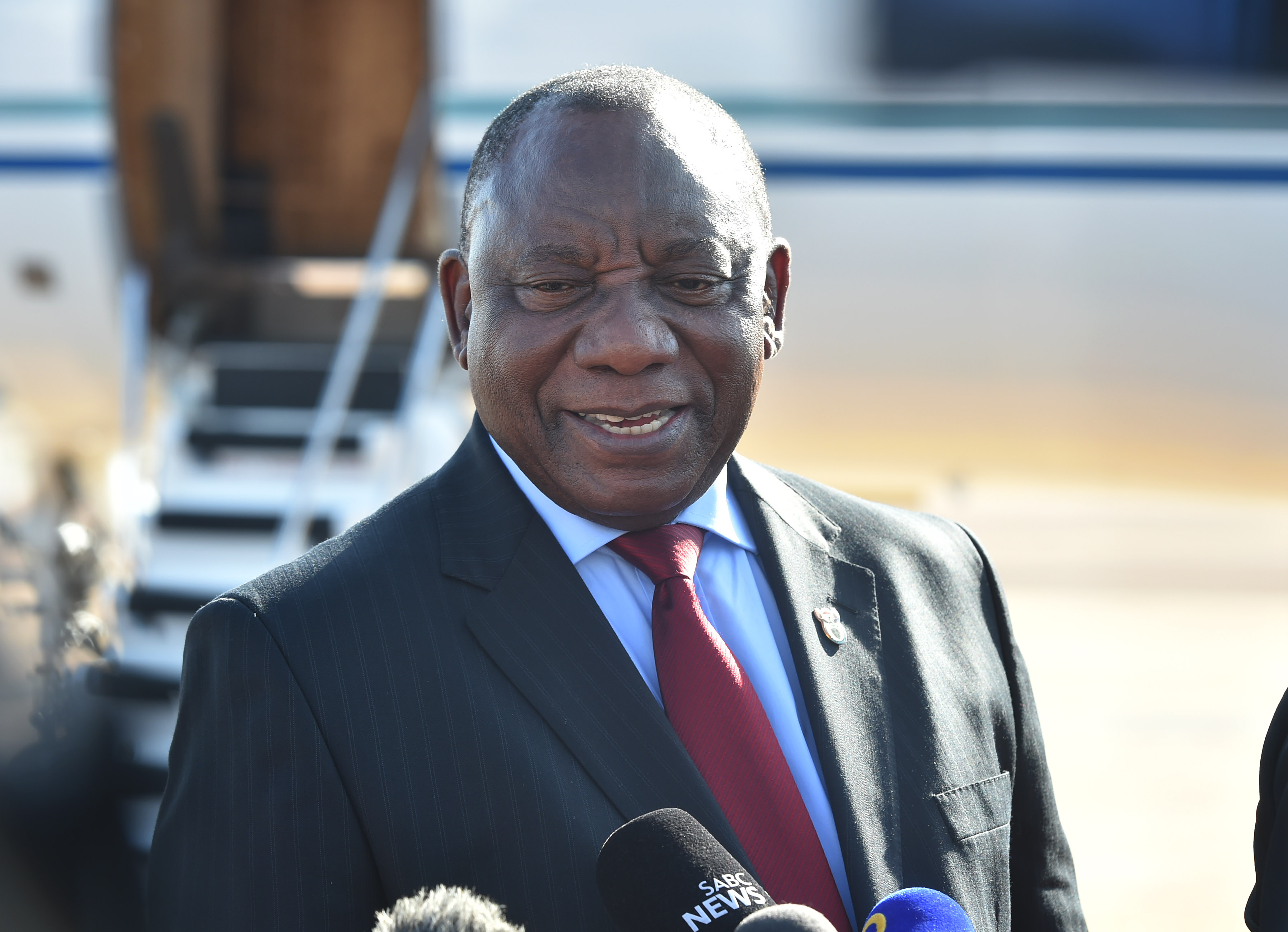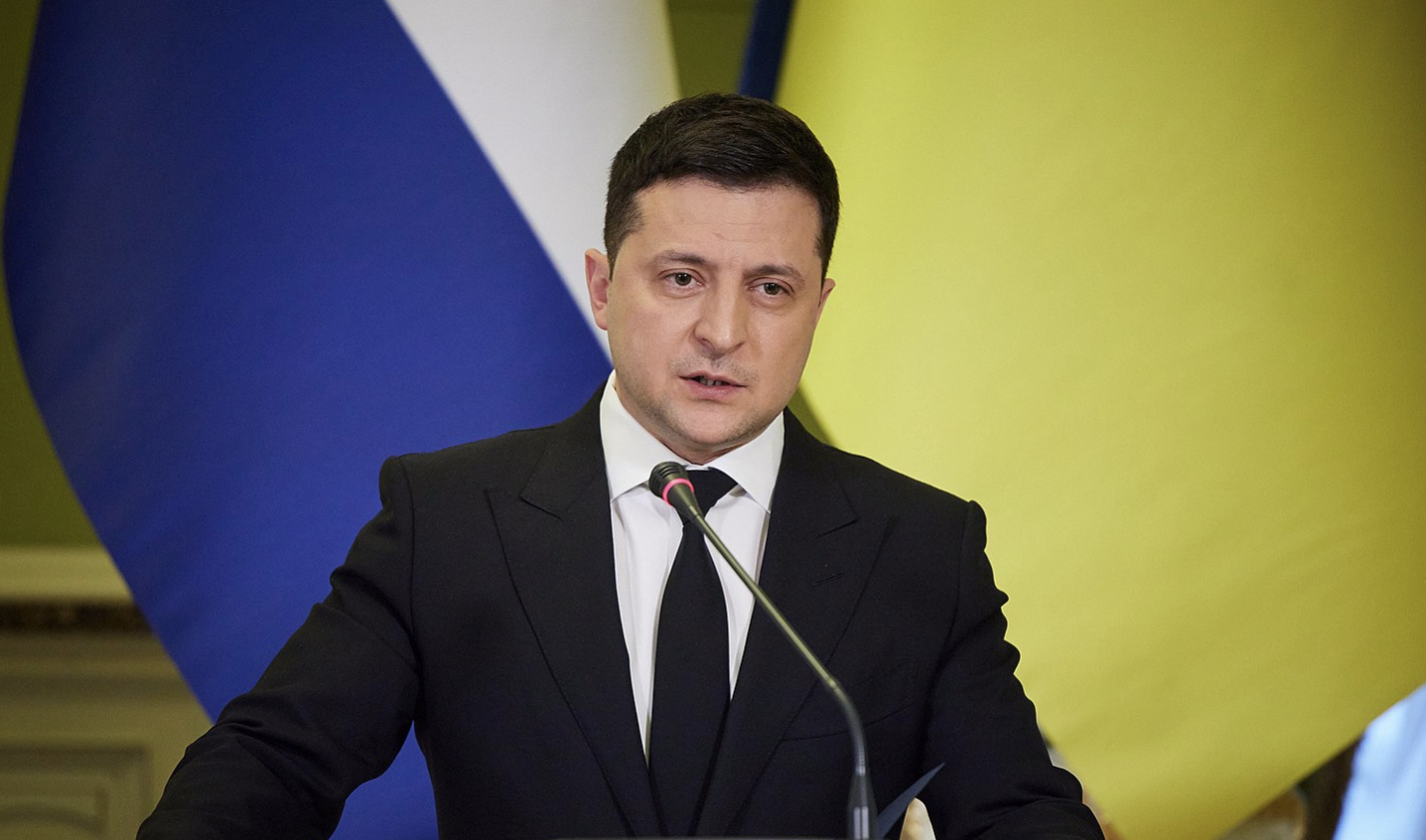News
Punching Below our Diplomatic Weight – Why SA Foreign Policy Fails on Ukraine
It may well be that President Cyril Ramaphosa is rattled, and not just by the Lady R and the cost of South Africa’s ill-judged diplomacy towards the conflict and its relations with the US, which is why he seized on a pre-existing Brazzaville Foundation initiative to launch ‘his’ peace mission.

Director, The Brenthurst Foundation

Research Director, The Brenthurst Foundation

One of the persistent foreign policy themes of the post-Cold War years is in the notion that countries should position themselves to “punch above their weight”, a term coined by the then British Foreign Secretary Douglas Hurd.
Post-apartheid South Africa was, in its early days, seen to punch above its weight, by dint of its transition from apartheid and its relative economic sophistication in Africa. Even though its economy was small (today ranking just 39th out of 216 countries and territories in GDP terms, in the company of Bangladesh, Hong Kong, Denmark and Egypt, and more revealingly just 96th in GDP per capita), and its armed forces were politically compromised, the authority of its moral position gained it a place at the top diplomatic table.
There was a personal dimension to this, just as President Volodymyr Zelensky and his team have managed with Ukraine. This step up in weight divisions, to use a further boxing analogy, reflected the stature of Nelson Mandela, and the reconciliation he personified.
Now that transition is fraying, South Africa’s moral authority has been undermined by continuous cavorting with dictators and totalitarians and a looney-left UN voting record. The miracle of the end of apartheid has faded, its economy is now creaking and its armed forces hollowed out.
The end of the “miracle” is best summed up by Wally Rhoode, the general in charge of the Presidential Protection Service, who accused the Polish authorities of “sabotage” and “racism” because they insisted on the proper paperwork for 12 – yes 12 – containers of arms on board the plane that brought President Cyril Ramaphosa to Warsaw.
This munitions stockpile was apparently for the 90 South African security personnel who, along with 30 journalists, were to accompany Ramaphosa on his journey to Kyiv to meet Zelensky.
The story of what was in those 12 containers has legs. According to the Sunday Times, the flight was “flagged for carrying an extra dozen boxes of powerful weapons that had not been declared to Polish authorities, according to government insiders”.
Among the undeclared and unauthorised weapons were “long-range sniper rifles and weapons normally used in serious conflict”, the newspaper said, quoting “highly placed South African government insiders”.
Rhoode’s astonishing accusation of “racism”, which he levelled when Polish authorities rightly wondered about the purpose of this arsenal – Ukraine is, after all, a war zone and its president in constant mortal danger – was startling. From Namibia to Warsaw, this general is a caricature of what is wrong with our governance and the descent of our politics into populist racial slights whenever incompetence needs to be disguised.
This type of response embodies South Africa’s credibility problem. Instead of relying on moral authority, Pretoria now relies on the size and weaponry of its delegation to prove its credentials and assert our right to be at the top table.
When Boris Johnson visited Kyiv, he did so reportedly with six people, Rishi Sunak with 10. Hakainde Hichilema’s delegation reportedly comprised less than a tenth of the South African manifest. And yet the Zambian president made, according to the insider account, a most valuable contribution in the exchanges since he was, it was said, the best prepared.
This is half of the problem. The crisis of credibility is fundamental in the question: Why did South Africa choose to instigate this so-called peace mission now, when the conflict is hardly ripe for resolution or, in Ramaphosa’s confusing terminology, “de-escalation”?
Moreover, this call for peace is now a recurring theme among the Moscow camp, from Beijing’s 12-point peace statement to Viktor Orbán’s mutterings. As Budapest’s Putin ally recently put it in justifying Hungary’s continued blocking of EU funds to Kyiv, “it is obvious that the military solution does not work,” blaming the Russian invasion on “failed diplomacy”.
“If you look at the reality, the numbers, the context, and the fact that Nato is not ready to send troops, it is obvious that there is no victory for the poor Ukrainians on the battlefield. This is my position,” Orbán stated, calling for Washington-Moscow negotiations to end the war.
This has come at the same time that Vladimir Putin has called the Ukrainian offensive a defeat, claiming that Kyiv’s losses were approaching a “catastrophic” level.
Yet, if South Africa, China and Hungary, among others, believed Russia was about to triumph it would be very different. Then we would be back to the first days of “too sad, so bad, but Kyiv must accept the inevitability of defeat”.
At the same time, there is a stack of commentary which says that the Ukrainian offensive is failing, that the Russian defences are too strong.
In reality, however, what we have seen so far is a series of probing attacks by the Ukrainians, testing the Russian positions, presumably at the same time gaining a welter of information on frequencies, force dispositions, and other bits of useful intelligence.
There has been, generally, a far too little reflection on Russian failures – the failure to adequately prepare for the invasion, to counter Ukrainian defence, to support the invasion logistically, to prepare sufficient troop levels, and the failure of Moscow’s bellicosity.
This ties in with ongoing analytical and political failures, for example in Europe of how he threw away the “fuel weapon”. This idea was so deeply entrained with pundits in believing that “we might not like it but Moscow has the West by the balls”, and yet many will not want to be reminded about their predictions last European autumn of “Ooohh, the WINTER… you will then seeeeh the protests in the West”.
The energy weapon has proven an empty threat and such Russian tactics a failure.
It may well be that Ramaphosa is rattled, and not just by the Lady R scandal and the cost of South Africa’s ill-judged diplomacy towards the conflict and its relations with the US, which is why he seized on a pre-existing Brazzaville Foundation initiative to launch “his” peace mission. It may well be that the South African president, in strange company with Orbán, Xi, Tucker Carlson and others, is scared of what will happen if the Russian regime implodes, including its potential as a catalyst for reversing authoritarianism.
Hence the shrillness about how everyone must come to their senses and for de-escalation, no matter how nonsensical this is for the Ukrainians (who were invaded and who simply, as President Zelensky has put it, want the Russians to leave).
Coupled with Russian funding (directly by oligarchs of parties, and indirectly via the promise of, for example, oil and gas deals) and influence, and the envoys are now running. The Russians are very good at sowing dissension, and with their bot farms, television outlets and mouthpieces, African narratives are likely also to be fuelled or enhanced by the boys in Moscow.
Hence the pervasive “it’s a failure” counteroffensive media narrative, even in these early days.
Put differently, Moscow is kakking itself. For good reason. “Systems without clear rules of succession,” writes Simon Sebag Montefiore, “grant enormous power to the ruler but also mean they have no means of retirement.”
Such fears are heightened by the belief that the possession of Ukraine is essential to Russian statehood. But in this lies great risk. “Victory makes a Russian ruler invulnerable, almost sacred. Defeat places a Russian ruler in danger from his closest courtiers, ministers and generals,” notes Sebag Montefiore.

Now, if there is a breakthrough by the Ukrainians, and the Russian army starts running, you will see a lot of “FOR GOD’S SAKE, MAKE IT STOP”, a cornered Putin will use nukes, and so on.
In this war, the manner in which helpful idiots get away with shamelessly adapting their messaging is fascinating. “Haha, US claims of invasion are ridiculous – did Russia invade no they didn’t – would be so irrational of them to do it”. And then: “Wow, Nato provoked an invasion after all. Oh well, Ukraine is finished, their useless army trained by weak, transgender Westerners doesn’t stand a chance.” This was followed by, “Oh evil Zelensky (who is not in Kyiv anyway: it’s all green screen) tricks Ukrainians to fight pointlessly and making the horror last unnecessarily”. Now it’s: “OK. Ukraine is still there, but only because US throws weapons at them and forces them to fight, and besides Russians haven’t even started waging war for real yet.”
The news cycle spins so fast, making the endless flip-flopping and flick-flacking both amazing and nauseating at the same time. Still, we should pause to consider how the efforts to shape the news continuously fail to be on the mark, and call it.
Watch out for the takes if and when Ukraine emerges victorious. Both in Russia and outside there is a Dolchstoß legend in the making.
This is currently most clearly articulated by Wagner’s Yevgeny Prigozhin along the lines of: “The guys at the front fought heroically but were betrayed by incompetent generals/cowardly civilians/Jews/gays/feminazis etc. Russia won in reality but because of Washington etc etc.”
In that fable lie the seeds of another war.
Ramaphosa’s policy towards Russia is like betting on Berlin in late-1943. Earlier in that war, Petain and Quisling at least had good reason to believe that they were siding with a winner. Ramaphosa doesn’t have that excuse. He’s humiliating South Africa for nothing.
Of course, Moscow’s fellow travellers will never admit that Ukraine won. In particular, this would undermine the fallacy that the “Ukrainians only hang around because of the fancy weapons from the West”.
This view is of course incredibly demeaning. Such a long list of governments – from South Vietnam to Afghanistan – propped up by the West did not win, even against guys in flip-flops. Victory demands much more than just weapons; in particular, training, motivation and fighting will, logistics and organisation.
For lightweights to punch as foreign policy heavyweights, they have to base their diplomacy on achievements at home, and the company that they keep. Douglas Hurd knew as much. Britain’s leverage depended on continued American commitment to Nato and London’s special relationship with Washington.
The company that South Africa keeps, by contrast, has turned a once great underdog into a punch-drunk punch bag.
This article originally appeared on the Daily Maverick
Photo: Government ZA Flickr

